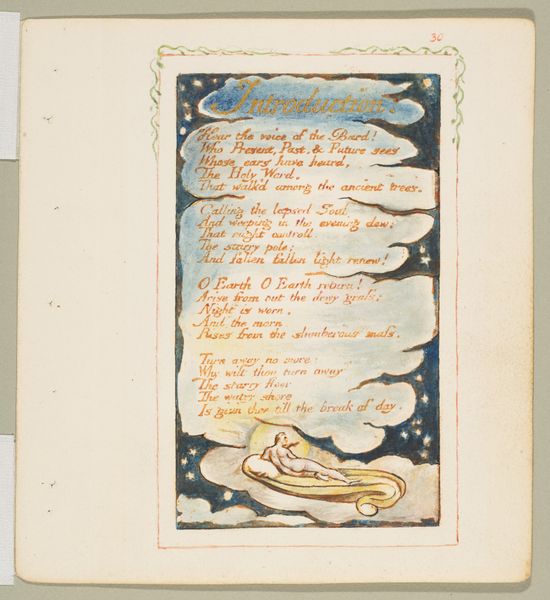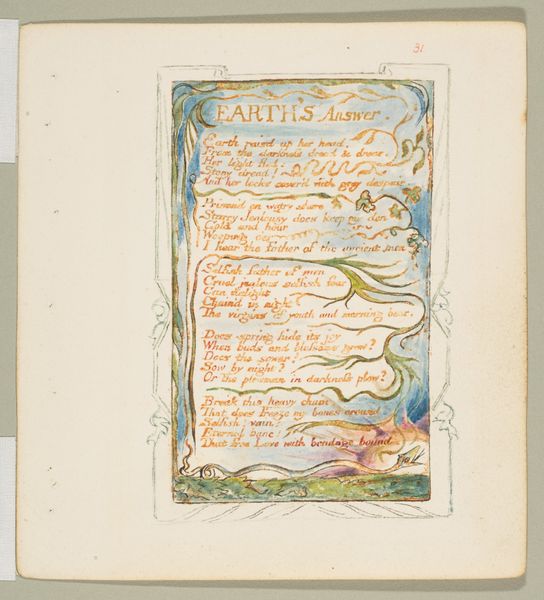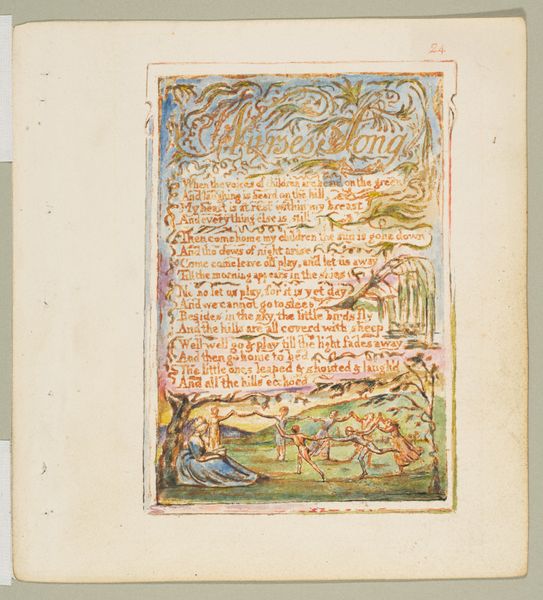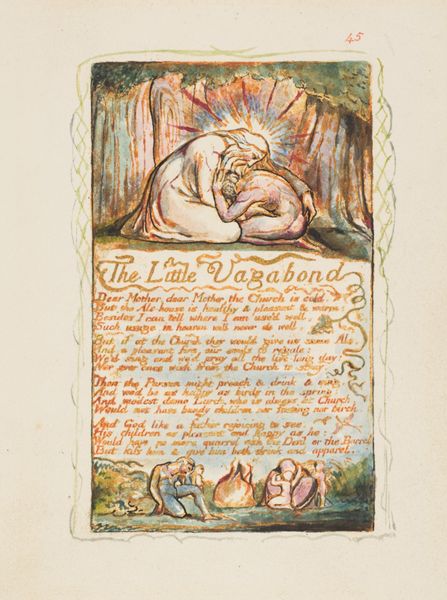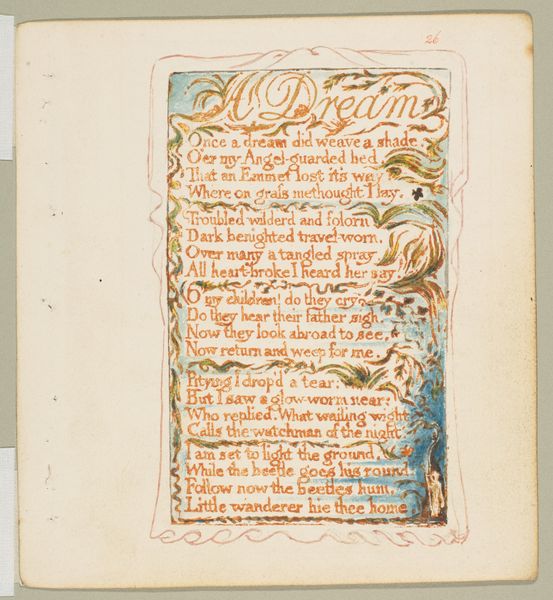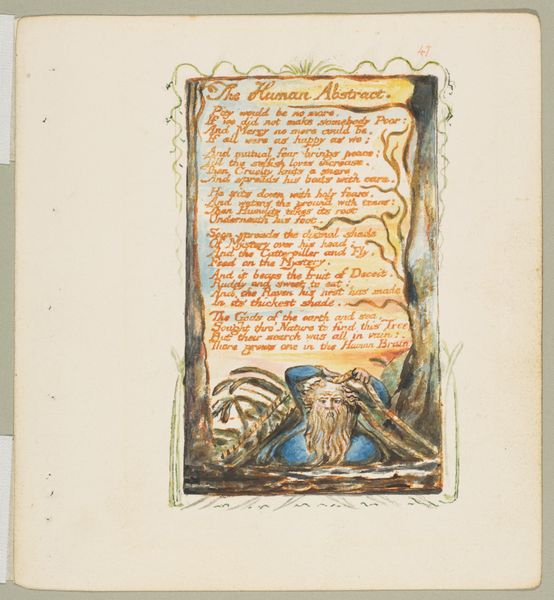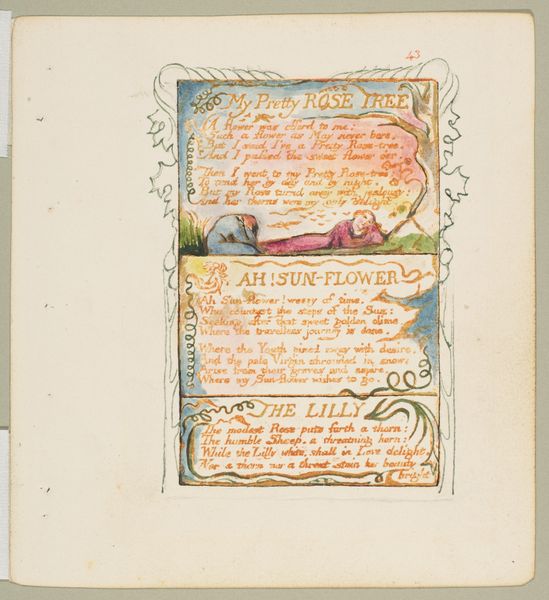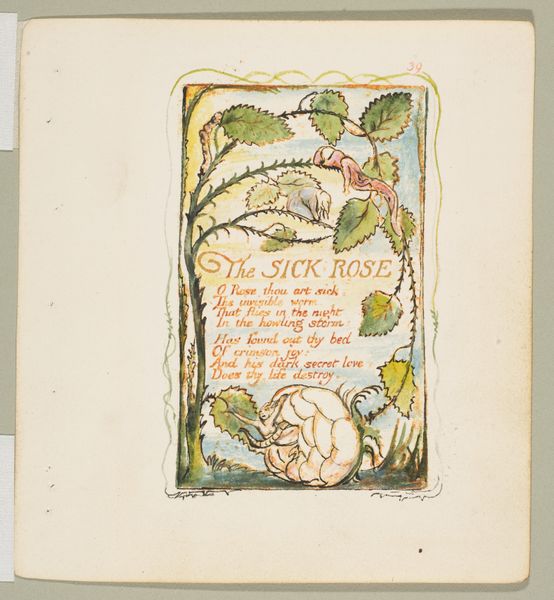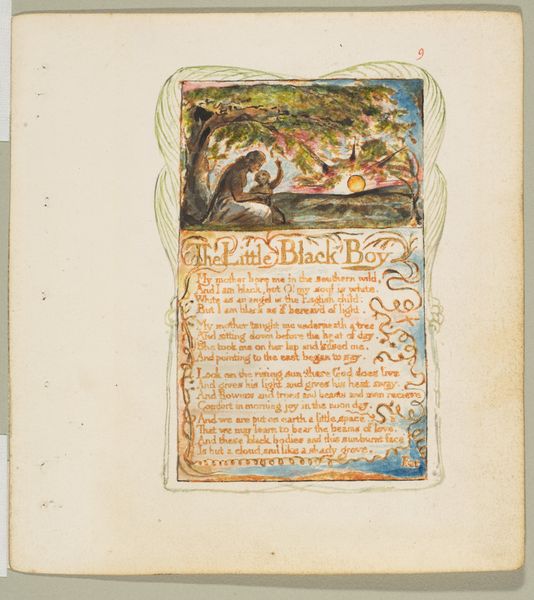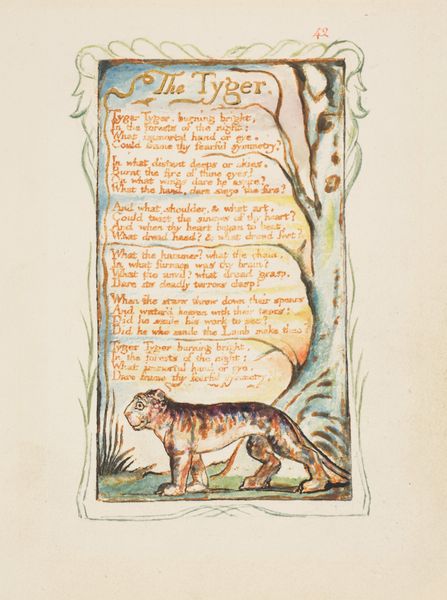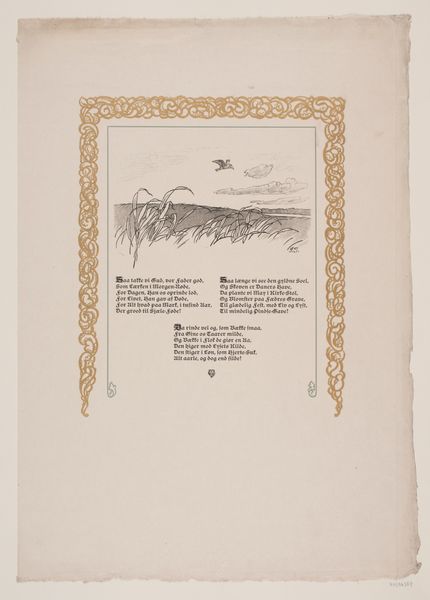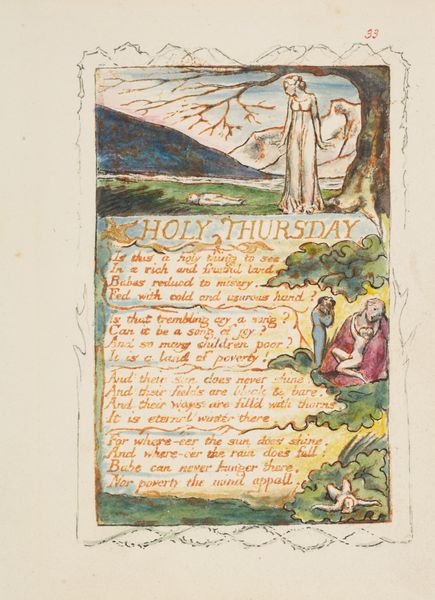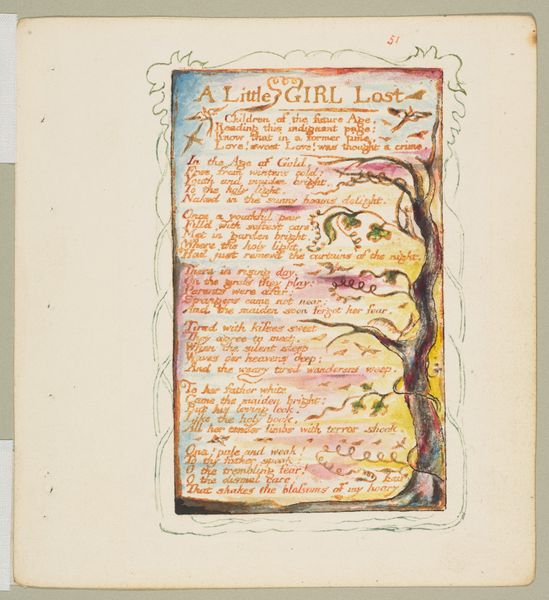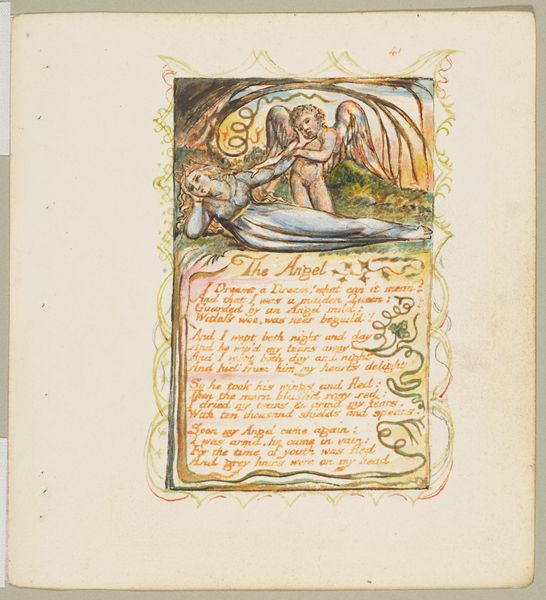
Songs of Experience: The Clod & the Pebble 1794 - 1825
0:00
0:00
Dimensions: sheet: 6 3/16 x 5 9/16 in. (15.7 x 14.1 cm)
Copyright: Public Domain
Editor: So, here we have William Blake's "Songs of Experience: The Clod & the Pebble," created sometime between 1794 and 1825, a watercolor and ink drawing, I believe. The composition seems divided, animals up top, text and smaller creatures below, but what I notice most is this sense of contrasting imagery and emotions running throughout it. How do you interpret this work? Curator: Blake is an iconographer. He presents a visual and poetic contrast, the Clod representing selfless love and the Pebble, selfish love. Note how the image reflects this duality, with communal animals above, almost faceless in their conformity, against the wild individualism below. The images amplify his poems; each creature depicted becomes a symbol laden with deeper psychological resonance. Do you see how the coloring adds to the symbolism? Editor: I see that the upper section seems dominated by earthy tones while the bottom is much lighter. The duck for instance seems much more colourful. Curator: Indeed. Think of the colors themselves as emotional triggers, highlighting that division you initially sensed. The clod's world is muted, subdued – the realm of shared experience. But the pebble's world is sharper, distinct in form and color, individualistic and potentially destructive in its isolated passion. Consider how this connects with Blake's larger critique of institutionalized power. Editor: So the image and poem, work together to critique the society he lived in? Curator: Precisely. Blake employs enduring visual metaphors, challenging our notions of love, freedom, and authority, through symbols rooted in our shared cultural memory. The figures serve as anchors for larger abstract concepts, allowing Blake to transcend the specific. Editor: I’m starting to see how the personal and the political intertwine in his use of symbolism. I initially just saw a drawing but the deeper context reveals so much more! Curator: It's a reminder that images aren't just representations, they’re cultural maps. By understanding their symbolic language, we unlock layers of meaning across time.
Comments
No comments
Be the first to comment and join the conversation on the ultimate creative platform.
